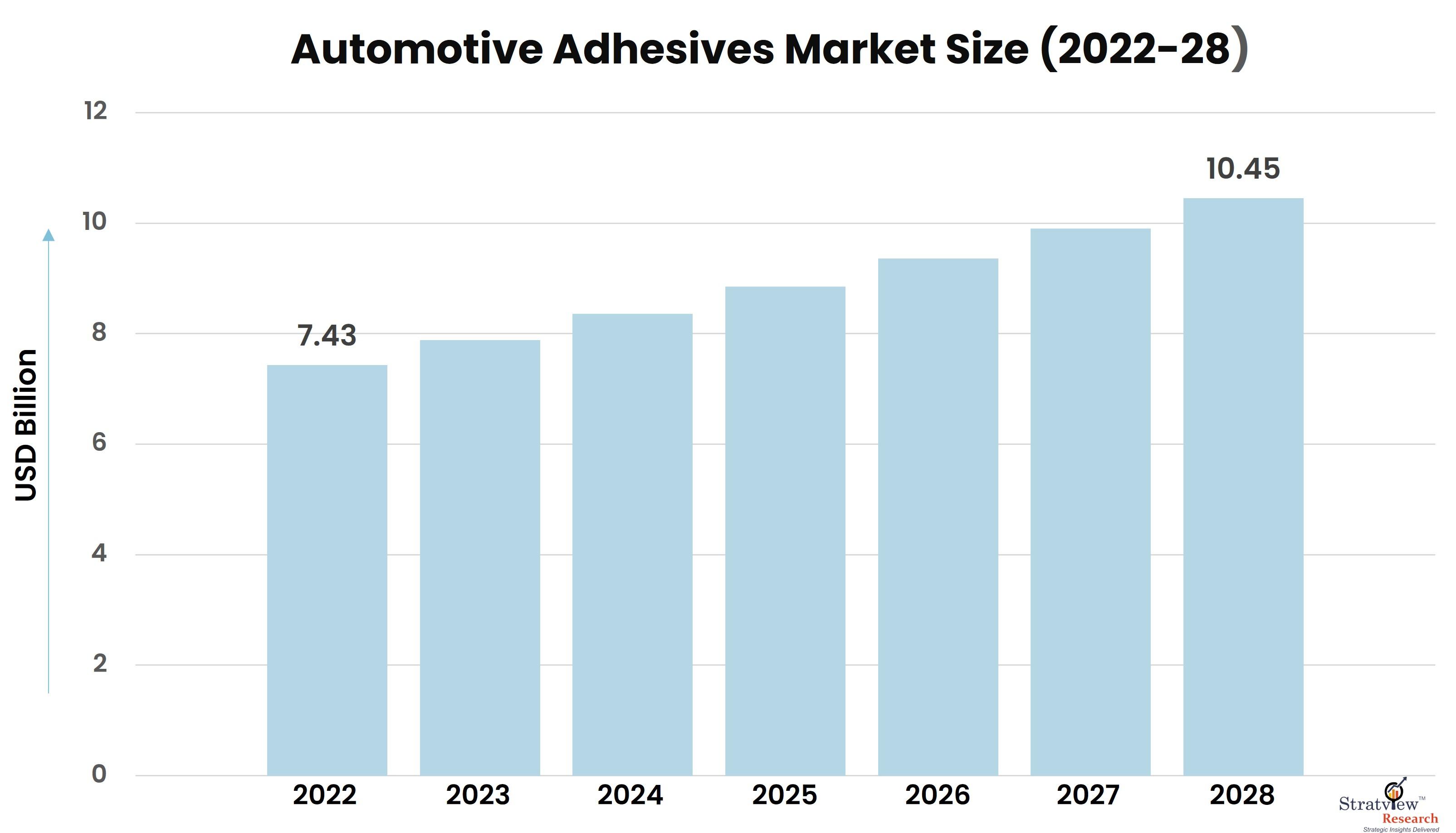Sticking Together: The Role of Adhesives in Modern Cars

According to Stratview Research, the automotive adhesives market was estimated at USD 7.43 billion in 2022 and is likely to grow at a CAGR of 5.8% during 2023-2028 to reach USD 10.45 billion in 2028.
When we think of innovation in the automotive industry, our minds often gravitate toward the latest electric vehicles, autonomous driving features, and cutting-edge infotainment systems. While these innovations are undoubtedly game-changers, there's another, less glamorous player in the automotive revolution—the adhesive. Automotive adhesives have quietly but significantly altered the way vehicles are designed, built, and perform. In this article, we'll explore the latest trends in the automotive adhesives market, revealing how this seemingly mundane component is shaping the future of transportation.
Lightweighting and Efficiency
One of the most compelling trends in the automotive adhesives market is the pursuit of lightweighting. As automakers strive to meet stringent emissions standards and improve fuel efficiency, every pound saved matters. Adhesives, which are lighter than traditional mechanical fasteners like bolts and welds, have become essential in achieving this goal. Lightweighting not only leads to reduced fuel consumption but also enhances overall vehicle performance and handling.
Moreover, lightweighting is especially vital in electric vehicles (EVs) where every ounce shaved off contributes to extending the range of these vehicles. Automotive adhesives have thus become integral to the EV revolution, enabling the construction of lighter yet structurally sound electric cars.
Versatility and Material Compatibility
In an industry that increasingly relies on a diverse range of materials, automotive adhesives are prized for their versatility. They can bond various materials, from metals to composites and plastics. This flexibility allows automakers to experiment with different materials and design possibilities, which is particularly advantageous in creating more aerodynamic and efficient vehicles.
Moreover, adhesives help reduce galvanic corrosion—a common issue when dissimilar metals come into contact—by providing a barrier between materials, thus improving the longevity of vehicles.
Enhanced Safety and Structural Integrity
Safety is a paramount concern in the automotive world, and here too, adhesives play a crucial role. Beyond merely holding parts together, adhesives distribute stress uniformly and reduce vibrations, contributing to a quieter and safer ride. They enhance the structural integrity of vehicles, improving crash resistance and occupant safety.
By eliminating the need for holes and welds, adhesives also prevent potential weak points that could compromise vehicle integrity. This is particularly important in modern cars, which increasingly feature large and complex vehicle structures, including electric and hybrid vehicles.
Sustainable Solutions
The global push for sustainability has reached the automotive industry, and adhesive manufacturers are answering the call. Adhesive formulations are evolving to reduce environmental impact. Solvent-free adhesives and those with low volatile organic compound (VOC) emissions are becoming more prevalent, aligning with the automotive industry's commitment to environmental responsibility.
In addition to the environmental benefits, the use of adhesives allows for the easy disassembly and recycling of vehicle components, which is crucial in the development of circular economy practices within the automotive sector.
Automation and Robotics Integration
The adoption of automation and robotics in manufacturing processes has fueled the need for precise and reliable bonding solutions. Robotic arms equipped with adhesive dispensing systems can apply adhesives with unparalleled accuracy, ensuring consistent results in complex vehicle assemblies.
This integration of automation not only enhances the quality of adhesive applications but also improves production efficiency and reduces human error, ultimately leading to higher quality and safer vehicles.
A Bright Future for Automotive Adhesives
As automotive technology continues to advance, the role of adhesives in vehicle design and construction will become even more significant. The trends in the automotive adhesives market highlight the pivotal role they play in the industry's ongoing transformation.
In the pursuit of lightweight, efficient, safe, and sustainable vehicles, adhesives have emerged as a silent but powerful driving force. As automakers increasingly embrace these trends, we can expect the adhesive industry to evolve further, providing innovative solutions that will continue to shape the future of transportation. Gluing the future together, automotive adhesives are proving to be an essential ingredient in the recipe for safer, more efficient, and environmentally responsible vehicles.
- Art
- Causes
- Crafts
- Dance
- Drinks
- Film
- Fitness
- Food
- Jogos
- Gardening
- Health
- Início
- Literature
- Music
- Networking
- Outro
- Party
- Religion
- Shopping
- Sports
- Theater
- Wellness




